Loviatar (low-VIE-a-tar (common) / LOW-vee-a-tar (archaic))
Goddess of secrets and goddess of evil; the Undying, the Archbetrayer, and Mother of All Evil
Loviatar is the Goddess of Secrets and Goddess of Evil, a dark and terrible deity that seeks to destroy the works of the Empyreal Gods and tempts their mortal children to wickedness. She is the only antagonistic deity in the pantheon of the Empyreal Faith, having retained her station as one of the Twelve Sovereigns despite her countless misdeeds.
Worship of Loviatar is often covert. The antagonistic nature of her divine domains and her contentious relationship with the other Empyreal Gods make her a deity that borders on the profane. In some cultures, her worship is considered taboo; in more stringent societies, her worship is deemed outright criminal, punishable by severe penalties. Loviatar's devoted followers gather in secret enclaves and dark corners to seeking guidance in their nefarious endeavors. Temples concealed in forests or nestled deep in remote caverns serve as sanctuaries for worship and contemplation.
As a deity of secrets and evil, Loviatar is believed to tempt mortals to commit wicked acts, leading them astray from the path of righteousness. She is seen as a cunning and manipulative deity that lures mortals with promises of power, wealth, or influence, only to ultimately lead them to destruction. Her teachings and influence are often associated with treachery, deceit, and betrayal, emphasizing the darker aspects of human nature and the allure of forbidden knowledge.
The spiral goddess can also represent change through adversity before death.
And just as the Undying Goddess is eternal, so too is evil itself. Loviatar represents the undefeatable nature of evil, the inevitability of happiness not lasting, the unavoidability of strife even after the longest peace. The Spiral Goddess is the emblem of this eternal truth.
These descriptions paint a terrifying picture of Loviatar, vastly different from the various forms she appears in to her followers. It suggests that her true nature is unfathomable and beyond mortal comprehension, filled with immense power and unimaginable suffering. The revelation of Loviatar's true aspect is believed to be so horrifying that it can drive even the most iron-willed worshippers to madness.
Accounts of the Torturous One are viewed with caution and skepticism by the mainstream followers of Loviatar, as they challenge the carefully crafted image of the goddess that has been upheld by the Imperial Church. Nevertheless, for those few who have delved deep into the mysteries of Loviatar but have yet to glimpse her true form, whispers of Loviatar's true form serve as a stark warning of the overwhelming power and darkness that lies beneath the surface of the enigmatic Goddess of Secrets.
Religious knowledge
Loviatar's story is one of tragedy and corruption. She is the only member of the Empyreal Gods that has been consumed by villainous desires, making her rebel against the other Empyreals in the myth of Fimbulwinter. She committed the First Treason, forever fracturing the family of the gods. She brought war willingly to Amanor, breaking peace for the first time since the Dawn Wars. In her desperation she created Undeath itself, and forevermore has its taint plagued the cosmos. To this day, Loviatar stands far apart from the Empyreal Gods -- she is evil deified and the epitome of unholiness. In the myths of the Empyreal Faith, Loviatar has died twice and has given away seven pieces of her soul to her seven Disciples. She exists now only in a weakened spiritual form, yet still exerts great influence on Amanor. Loviatar frequently manifests avatars and communicates with mortals, seducing them to dark and perilous paths with promises of power. She bestows upon her devout followers powers of knowledge and shadow, as well as the unholy gift of necromancy, further spreading the plague of undeath across the world. Before her fall from grace, Loviatar was one of Oberon's consorts, bearing him many godly children. While some of her offspring are virtuous, many have embraced villainous paths. Most of Loviatar's monstrous children perished in the myth of Ragnarok, a cataclysmic event that reshaped the world of Amanor.Worship
Loviatar is worshipped all across Amanor, and even in the wide cosmos beyond. As the only evil god of the Empyreal Faith, she has several divine domains that are unique to her, tempting many mortals and eternals to seek her blessings. The Imperial Ecclesiarchy – the ecumenical parent church of the Empyreal Faith – recognizes Loviatar as the Goddess of Secrets and Goddess of Evil. She is a member of the Triune of Mysteries together with Vaane and Arath-Sodan. All three goddesses are dark and elusive, their divine domains the most mystical aspects of creation. They represent the unknown knowledge of the universe and its temptations; the great advances yet to be discovered, the dark lore so terrible and maddening that it is best left alone, and the primordial secrets that no mortal can ever learn. The Imperial Church of Loviatar is a small sect of the Ecclesiarchy that functions as the parent church of all loviatarian worship in the Heartlands. It is headquartered in the Hall of Secrets in Viroconium, for the Empire is the only nation in the Heartlands where the worship of Loviatar is not completely taboo. Nonetheless, many Egeans see the Church of Loviatar, and the presence of its temples in their cities, as a subject of great shame. Although the Empyreal Faith sees Loviatar as a villainous opponent of the Empyreal Gods, she is not counted amongst the Outer Gods – the abominable deities of the great cosmos that would destroy Amanor if not for the protection of the Empyreals. However, her followers have a very dark reputation in most cultures. It is said that loviatarites are willing to undertake almost any imaginable acts of violence and treachery in the name of their goddess. Loviatar's priests are often highly skilled in the arts of infiltration and secrecy, and her temples can serve as headquarters for criminal organizations and cults. Loviatar is worshipped by criminals and spies, for her powers of knowledge and shadow are unmatched. Many scholars and mages also seek her guidance in their studies of the arcane, for the secrets she commands are thought to include all the mysteries of the universe. However, those who seek her power must be careful, as her blessings come with a heavy price. Despite her tainted reputation and the challenges faced by her followers, Loviatar's dark gifts remain tempting to those who seek knowledge, power, and secrecy. Her influence is ever pervasive, perpetuating her legacy as the Mother of All Evil in the mythos of Amanor.Goddess of Secrets
As the Goddess of Secrets, Loviatar helps her worshippers both learn secrets and keep secrets. In this capacity, she is worshipped by kings and merchants, by soldiers and judges, by seedy politicians and cheating spouses. Loviatarian worship has a duplicitous reputation even in the Empire, a nation with more religious freedom than any other in the civilized world. Recognizing this, the Imperial Church of Loviatar goes to great lengths to protect the identities of its patrons. Loviatar's temples are usually visited their in disguise.Everyone is entitled to their secrets.Not all of Loviatar's worship is seedy, for her domain of secrets is also a domain of knowledge. Scholars give offerings to the goddess when seeking to learn new, previously undiscovered truths about the world and its arcane workings.
Goddess of Evil
As the Goddess of Evil, Loviatar is the greatest and most terrible villain in Empyreal mythology. Although it was the cosmic Outer Gods that first waged war on Amanor when the world was young, it was Loviatar that broke apart the family of the Empyreal Gods with her treason and her lust for forbidden power. The Empyreal Gods shield the world from the influence of the Outer Gods, but Loviatar still finds it easy to infliltrate Amanor and tempt its peoples to evil with promises of power. To worship Loviatar for the sake of her darkest gifts -- such as blood magic and necromancy -- is forbidden even in Egea. The Empyreal Faith holds as gravest sacrilege both undeath and the blood sacrifice of sapient creatures. Loviatar is not inclined towards the same righteous morals as the other Empyreals. She will grant dark blessings and teach unholy arts to those that supplicate before her with appropriate reverence. Such heretics risk their very life and soul for power.Goddess of the Pyre
The title of "Goddess of the Pyre" is bestowed upon Loviatar, as she herself was burned to death as a punishment for the most heinous of crimes. According to Imperial dogma, both execution pyres and burial pyres are considered sacred to Loviatar, as they are believed to consign the soul of the deceased to her custody in the afterlife. The practice of cremation is not widely accepted in most cultures of the Heartlands, as it is believed that it may condemn righteous souls to Loviatar's clutches for eternity, and also risk swelling the ranks of her spiritual servants with wicked souls. Death by burning is reserved as a punishment for only the most abominable of crimes. Typically, only those who have already embraced the dark favor of the Goddess of Evil are sentenced to immolation. Those found guilty of treason, heresy, or the practice of forbidden magic are often subjected to this gruesome punishment, following the example set by the Empyreals in dealing with the Archbetrayer. These notions are rejected by many peoples that exist beyond the religious influence of the Imperial Ecclesiarchy. In these cultures, cremation and immolation may be associated with other deities, such as Shan-Ra or Iona. And even if a religion associates death by burning with Loviatar, it may freely allow cremation as a burial ceremony in honor of other Empyreal Gods.Iconography and religious symbols
The Imperial Church of Loviatar has little use for heraldry or religious imagery. Its temples and cathedrals are known for their black walls and foreboding architecture. The goddess herself can be pictured in statues within the deepest sanctuary of a temple, but other imagery is noticeable by its absence; there are no murals, frescos, paintings, or likenesses of ancient saints. Heretics and blasphemers use body-painting and tattooing to express their faith in the Goddess of Evil. This is true also for the seven deities known as the Disciples of Loviatar. In some cultures, the symbols and icons of Loviatar and her Goddess-Disciples are interchangeable. Necromantic rituals made before Loviatar's altar can use the sacred symbols of Nepthys, for example.Perth
Loviatar is the Goddess of Secrets and her sacred symbol is Perth, a primordial glyph that represents the unknown. It pertains to many concepts from mystery and secrecy to hidden things and hidden meanings, from hitherto uncovered lore to unknowability itself. Loviatar is a rebellious goddess that parted ways with her Empyreal family, and thus her symbol carries the meanings of defiance, independence, and forging one's own destiny. Perth also pertains to eldritch lore, occult abilities, femininity, and deadly games.Spiral Goddess
Loviatar is the Undying Goddess, for she has been slain in the myths of Fimbulwinter and Ragnarok both, and yet she endures in the world to this day. The symbol of the Spiral Goddess is a humanoid figure -- often feminine -- and with a spiral pictured inside her and with long arms that form a circle over her head.
The spiral goddess represents reincarnation and rebirth as an endless cycle -- a notion that is more than a little heretical to the Empyreal Faith, which sees death as holy and undeath as unholy. Loviatar has always returned from death in a form that is different from before, having gained new powers and having learned new truths from death. Reincarnation is always a process of change.
Septagram
The number seven and its geometrical representations are sacred to Loviatar, for she is mother to seven daughters. The Disciples of Loviatar are mighty and true goddesses all, loyal servants of their dark matriarch and inheritors of her unholy gifts. Each Goddess-Disciple bears within her an aspect of their mother's boundless evil, having received a fragment of Loviatar's soul in ancient myth. Dead and weakened though the Goddess of Evil is in the present day, she has seven faces with which to spread her lies and seven hands with which to strike at her enemies. The Disciples of Loviatar are commonly represented with the symbol of a seven-pointed star known as Loviatar's Star or the Disciple's Septagram. Loviatar's sacred symbols -- often either Perth or the spiral goddess -- are displayed in the middle of the septagram, while the glyphs of her Disciples can be spread around it.Paraphernalia
Certain religious paraphernalia, including candles, paper, figurines, and statuettes, are integral to Loviatarian worship and are used in various rituals and prayers. They symbolize the darkness, secrecy, and sacrifice that are central to the worship of the goddess of pain and secrets. The specific practices and symbolism of these paraphernalia may vary among different sects and interpretations of the Loviatarian faith.Candles
Candles play a significant role in Loviatarian worship. They are used as a source of light during rituals and symbolize the fleeting nature of secrets and the impermanence of life. Loviatarian clerics often make special ritual candles that are inscribed with the symbols of the goddess and blessed with dark blessings. The candles are used to light the way into the goddess' sight during secret rituals and are often snuffed out after the rite is complete, shrouding the encounter in mystery.Paper
Paper is used in Loviatarian worship for writing prayers, incantations, and confessions. However, unlike in other faiths where written prayers are preserved, in Loviatarian worship, paper is often considered as something that must be destroyed to keep secrets hidden; prayer scrolls are set ablaze with the flame of ritual candles, symbolizing the hiding of secrets. The burning of prayer scrolls also serves as a powerful symbolic gesture of letting go of past sins, regrets, or burdens, and embracing a new beginning. It represents the belief that the purifying flames of Loviatar's blessings can cleanse the soul and offer a fresh start to her worshippers. The ashes of the burned prayer scrolls are often collected and scattered in sacred places or used in other rituals.Figurines
Figurines and statuettes are used as foci in Loviatarian prayers and rituals. They can represent the object of an incantation, such as a person whose secrets are to be gleaned. They can also be made to represent the supplicant themselves as they seek the dark blessings of the goddess, or they can be figures of other gods from whom the supplicant's deeds must be hidden. These figurines and statuettes are often crafted with great care and intricacy, representing the intricate nature of secrets and the art of concealment.Rites and rituals
Loviatarian worship is deeply steeped in dark and mysterious rites, rituals, and sacraments. These are often performed in solitude, with individuals communing directly with the goddess herself. Loviatarian worship is considered a deeply personal and introspective practice, where individuals seek to establish a direct connection with the goddess. Many of the Loviatarian rites and rituals are solitary practices, performed alone in a secluded space. This allows for a deep and intimate communion with the goddess, where worshippers can delve into the hidden mysteries that Loviatar embodies without external distractions. It is during these solitary moments that a worshipper might seek to learn forbidden secrets, reveal hidden knowledge, and obtain insights into esoteric lore. The personal nature of Loviatarian worship also allows for deep introspection and self-examination. Worshippers may engage in acts of personal sacrifice, facing their own fears, doubts, and shadows in the presence of Loviatar, seeking her blessings and guidance in their personal journeys. While Loviatarian worship may involve communal practices, the emphasis on personal rites and rituals underscores the individual pursuit of knowledge, secrets, and communion with the goddess. It is a solitary path where worshippers seek to establish a personal relationship with Loviatar in their quest for knowledge and power.Sacrament of Oathbinding
The Sacrament of Oathbinding is a solemn ceremony in Loviatarian worship, embodying the importance of secrecy and the binding nature of oaths. It is performed in darkness with candles used only sparingly. Worshippers inscribe their oaths on paper, pledging their unwavering commitment and loyalty to a goal or cause. After the oaths are sworn, the paper is destroyed by burning, ensuring that the secrets revealed in the oaths are not revealed to others. Oaths sworn in the presence of Loviatar are considered binding and inviolable, with dire consequences for those who break them.Rite of Sacrifice
Personal sacrifice is a core aspect of Loviatarian worship, symbolizing the willingness to endure hardship and suffering in pursuit of enlightenment and secrets. Rites of Sacrifice are practiced by Loviatarian worshippers as a form of purification and self-discipline. These rituals may include acts of fasting, penance, and self-inflicted pain, such as flagellation or other forms of self-mortification. These acts of sacrifice may be performed in secluded locations or during specific times of the year, marked by special occasions or festivals. The aim of these rituals is to attune oneself to the darker aspects of Loviatar's teachings and to demonstrate dedication and devotion to the faith through personal sacrifice.Ritual of Discourse
The Ritual of Discourse in Loviatarian worship is a communal practice, never performed alone. Loviatarian worshippers come together in small groups, creating a space where the pursuit of forbidden knowledge and the unlocking of hidden truths can be shared and discussed. The communal aspect of the ritual emphasizes the importance of collective wisdom, the exchange of ideas, and the shared exploration of the mysteries that Loviatar embodies. During the Ritual of Discourse, Loviatarian worshippers engage in deep discussions, debates, and philosophical inquiries, drawing on their collective knowledge and insights. The exchange of ideas, perspectives, and interpretations is highly valued, as it is believed that the secrets of Loviatar are best understood and revealed through shared discourse.Incarnations
Canon
The Imperial Church of Loviatar depicts its goddess as a tall and regal woman clad in simple, black robes. Despite her domains of evil and undeath -- which, of course, her Imperial Church does not like to speak of -- she is portrayed as a very human and easily relatable figure, much like many of her fellow Empyreal Sovereigns. However, where Oberon, Seldariel, Iona and others are portrayed in lavish clothes, exquisite jewels and grandiose headdresses, Loviatar's attire is simple and stark as a sign of her seperation from the other Empyreals.
As befits the Goddess of Secrets, there is very little recorded knowledge pertaining to the ways in which Loviatar interacts with her favored worshippers. Most Empyreal Gods answer the prayers of the pious, deliver visions to desperate supplicants, and touch the souls of those that wield their divine magics. The voices, words, and appearances of Empyreal Gods are well documented throughout history, with beggars and saints alike having shared their experiences for the sake of posterity. Loviatar and her worshippers are, of course, the exception; the Goddess of Secrets is an enigma, and her churces keep their knowledge to themselves.
Goddess of many faces
The diverse and ever-changing forms of Loviatar are only whispered of behind closed doors by her followers. As the Goddess of Secrets, Loviatar is believed to have countless forms that she assumes when appearing to her devoted, each tailored to the individual's perception and understanding. These forms may vary from being tempting and alluring to regal and majestic, from motherly and comforting to frightening and awe-inspiring. The followers of Loviatar view these manifestations as a testament to her boundless power and versatility, for only She is able to know the unique needs and desires of every mortal. It is believed that Loviatar appears to her devotees in a form that resonates with them the most, drawing them closer to her and speaking to the most hidden desires within their souls. Discussions about Loviatar's myriad forms are kept secret and shared only amongst the faithful. The Imperial Church of Loviatar is known for its strict code of secrecy and discretion. The elusive nature of Loviatar and the ever-changing forms in which she appears are considered part of the mystery and allure of her worship, and the whispered exchanges between Loviatarites are like a sacred bond for those who have been touched by the Goddess of Secrets.Beyond the veil
The zealous individuals who have served Loviatar for an extended period of time and have been touched by her divine secrets may find themselves overwhelmed by the weight of her true aspect. In their maddened ravings and heretical scriptures, they describe Loviatar's true form as a grotesque vastness of pain, hatred, torment, grief, and rage, far removed from the carefully composed avatars of an Empyreal deity.
According to these disturbed accounts, Loviatar's true form -- the so-called Torturous One -- is a raw incarnation of cosmic might and its great cost -- a being possessed of such dark oceans of knowledge that no mind could ever contain, brimming with the kind of power that scours flesh from bone by its presence alone, and writhing in the clutches of adversaries so terrible that knowing their nature would shatter one's mind and soul.
To witness Her presence is to court annihilation.
Her voice is the note of oblivion.
Her thoughts a sea of hatred.
Her visage a mask of madness.
Glorious is Her dark declaration of spite and resentment, the ultimate grudge, forever held.
Mythology
Origin
Like all of the Twelve Sovereigns, Loviatar is older than the world itself. The eldest of the Empyreals are family of gods who were once born from a divine source of pure light and fire known as the Empyrean. By their connection to the Empyrean, they learned to wield the power of creation, and with it sought to bring peace and order to a Universe filled with chaos, strife, and wickedness. Before her fall rom grace in the myth of Fimbulwinter, Loviatar was equal in power and esteem to the greatest of the Twelve Sovereigns. The Empyreal Gods follow the rule of Oberon and Seldariel, the Allfather and the Allmother. With Anthos they form the Triune of Creation. The God of Death is nearly equal in authority to the Allmother and Allfather, and so too was Loviatar once. Together these four gods were the keepers of the power of creation and conceived of the notion of create Amanor.Family
Loviatar, Oberon, Seldariel, and Anthos are without parents but Empyreal myths describe them as siblings nonetheless. Oberon and Anthos are blood-brothers by all canonical accounts, but Seldariel and Loviatar are often said to be more like kindred spirits, friends or soul-mates both to each other and the two brothers. The relationships of all Empyreal Gods are a complicated web that defies the mortal boundaries of marriage and sexuality. The gods are able to have children with each other regardless of sex, and many gods have amorous affairs both fleeting and long-lasting with many other gods -- and often even with their own siblings or children. Loviatar is no exception. Loviatar and Seldariel are the mothers and grandmothers of many younger gods. Loviatar has had children with both Oberon and Anthos, and also with such notable gods as Maelach, Melora, Vaane, Iona, and Etro. Her notable children include Hesiron, Hygemene, and Sariel. Many of her offspring are monstrous villains slain in heroic myths, such as the Fenris Wolf, Jörmungandr the World Serpent, and Loki the Deceiver. Loviatar was the wife and consort of Oberon before the two gods grew distant and the Allfather took Seldariel to wife instead. Thereafter Loviatar consorted with Laufi, the God of Frost and Thirteenth Sovereign. Together Laufi and Loviatar instigated the divine war of Fimbulwinter which ended in both their deaths.Dawn Age
The Dawn Age began as the Empyreal Sovereigns created Amanor and filled it with life. The gods dwelt in the world amongst their children, holding court in different places, some of them together and some alone. In the beginning, Loviatar and Oberon ruled as husband and wife, but their relations eventually grew cold. Oberon preferred the company of Seldariel, and Loviatar departed. She took residence on the north pole of Amanor, where she would dwell until her death. As the mistress of that freezing land she was known as the Hag of the North. Her consort was Laufi, the God of Frost, and their son was named Loki. After the terrible Dawn Wars -- fought against the invading evils of the Outer Planes -- the peace and splendor of the Dawn Age continued more or less as it had before. But the peace was broken when Loviatar and Laufi commited the First Treason, becoming the first gods to turn against their kin by stealing from the smith-god Hefaetrus his greatest work, the divine machine of plenty known as Sampo. This betrayal sparked an Empyreal civil war that is known in mortal mythology as Fimbulwinter, and forevermore would it fracture the fellowship of the Empyreals. In Fimbulwinter, Laufi, Loviatar, Nepthys and Svanrigge defended the north pole against the wrath of the Empyreals. To even the odds, Loviatar and Nepthys conceived of abominable rituals and created Undead for the first time. This was a crime perhaps even more terrible than the theft of Sampo, for Undeath has plagued the Universe ever since and given mighty tools for the forces of evil to use against the Empyreals in the Divine Conflict. Fimbulwinter ended in victory for the Empyreals. Laufi, Nepthys and Loviatar we slain, but both the Traitor Goddess and her disciple endured in undeath. Nepthys and Loviatar would plot for the next few millenia, gathering strength and allies before sparking the flames of war once more. And this time, it was the entire cosmos that would burn. Ragnarok began with Loviatar's reincarnation and its uncountable battles would rage for a thousand years. Worlds were reduced to ruins, gods were slain, and even the walls of Ulthgard were breached. Loviatar was able to steal the power of Divinity and raise her seven Disciples to godhood. But in the end, the Empyreals were victorious once more. Loviatar was slain a second time and her seven disciples scattered to the furthest corners of the cosmos. However, Amanor was forever changed. The gods departed the world to safeguard it from afar, leaving their mortal children to forge their own fates. The fey, too, departed Amanor, settling in the verdant utopia of Tír-na-nÓg. Undead and Monsters were banished to Samhain so that Amanor might be rid of their evil.Black Age
Following their defeat in Ragnarok, Loviatar and her Disciples spent millenia in hiding, working to once again infiltrate Amanor with their dark influence. They are largely held responsible for the evilness of mortal civilizations in the mythical Black Age. It was a time of calamity and strife that was ended only when the gods returned to the world from beyond the Firmament and scoured all evil from the world. In the Divine Calamity, god-wrought disasters annihialted entire civilizations and the Four Horsemen rode across the skies.Current day
Even though Loviatar remains an active antagonist to the Empyreal Gods, she endures after Ragnarok only as a greatly reduced spirit. According to myth of the Empyreal Faith, she is unable to reach the level of power she once had. As the twisted mockery of life and godhood that she is, Loviatar knows that she can no longer challenge the might of Ulthgard directly, and so she must be content with tormenting mortalkind.
Titles
Goddess of Evil
Goddess of Secrets
Goddess of the Pyre
Archbetrayer
Traitor Goddess
Undying Goddess
The Undying
Mother of Treason
Mother of Seven
Lady of Pain
Lady of Chains
The First (of Eight)
Mother of All Evil
Keeper of Secrets
Crone
Hag of the North
The Torturous One
Domains
Secrets, Knowledge
Evil
Trickery, Treachery
Magic
Undeath, Death
Shadow, Darkness
Fire
Affiliation
Empyreal Gods
Disciples of Loviatar
Aliases
Lowitar, Lowi, Louhi
Status
Dead or undead
Origin
Predates the Universe
Age
Immeasurable
Relatives
Oberon (consort)
Laufi (former consort)
Loki (son)
Fenris (son)
Jörmungandr (son)
Hekatoncheiron (son)
Goddess of Evil
Goddess of Secrets
Goddess of the Pyre
Archbetrayer
Traitor Goddess
Undying Goddess
The Undying
Mother of Treason
Mother of Seven
Lady of Pain
Lady of Chains
The First (of Eight)
Mother of All Evil
Keeper of Secrets
Crone
Hag of the North
The Torturous One
Domains
Secrets, Knowledge
Evil
Trickery, Treachery
Magic
Undeath, Death
Shadow, Darkness
Fire
Affiliation
Empyreal Gods
Disciples of Loviatar
Aliases
Lowitar, Lowi, Louhi
Status
Dead or undead
Origin
Predates the Universe
Age
Immeasurable
Relatives
Oberon (consort)
Laufi (former consort)
Loki (son)
Fenris (son)
Jörmungandr (son)
Hekatoncheiron (son)
Religions
Children
Related Myths
Dread mother of vengeance
Guide me to your path
From the light take me
In darkness remake me
Fill my heart with wrath
And make this a black day
Sacred tomes
Loviatar considers books to be sacred because they contain valuable knowledge. She particularly treasures tomes that contain forbidden information, such as the spellbooks of powerful necromancers, the writings of mad scholars who glimpsed otherworldly truths, and the prophecies of the apocalypse. However, since anonymity, obscurity, and secrecy are central to many of her rituals, books are inherently at odds with these values. Therefore, Loviatar's sacred texts must be kept hidden from prying eyes, locked away in the darkest of vaults, or circulated only among trusted members of cults and cabals through underground networks. To ensure secrecy, many of these texts are written in code or secret languages, and are deliberately crafted on easily destructible materials such as paper, so they can be quickly disposed of if necessary. The most well-known of Loviatar's sacred texts are the Ashen Apocrypha and the Black Apocrypha. The most sacred of all is the Necronomicon, a mythical tome of forbidden knowledge that has passed from the hands of one legendary villain to another throughout history.Loviatar's colors
Black. Black is the color of the unknown, the great void that tempts the bold and frightens the meek. Black is the color of shadow, the cold shroud that covers the deeds of the faithful. Black is the color of death, the final obstacle to overcome on the road to destiny. Purple. Purple is the color of the night, the dominion of Loviatar's servants. Purple is the sign of the Goddess' favor, for with a purple cloak she blessed her first daughter. Yellow. Yellow is the color of fire and flame, of the roaring pyre and the whispering candle. By fire was the Archbetrayer executed and by fire are her secrets preserved.Black candle
Black candles are the rarest and most sacred candles used in the worship of Loviatar. These highly magical objects are produced by clerics of the Imperial Church of Loviatar using secret rites. They are inscribed with both arcane and divine symbols, facilitating powerful enchantments of protection and drawing the attention of Loviatar to her faithful servants. The sticks of black candles are typically made of stone, metal, glass, or wax, and the wicks are enchanted to maintain a lit flame without the need for fuel. When kindled by any mundane or magical fire source, the flame that lights upon the wick is formed of an artificial, arcane fire. This enchanted flame shields the candle and its surroundings from outside observation and divination, making black candles highly valued for their protective properties. Unlike regular candles, black candles burn indefinitely without melting or consuming the stick.Violet veil
Worshippers of Loviatar can identify themselves to others by wearing purple-colored apparel. Cloaks, hoods, scarfs, and shrouds are favored by the initiated, and pieces of religious clothing are known as violet veils. The shape and cut of these veils, of course, varies greatly from land and church to another. Both black and purple are sacred colors of Loviatar, and violet veils range between any and all hues between the two. Loviatarian worship is largely taboo in the Heartlands, and people rarely express their devotion to Loviatar in public. The Imperial Church of Loviatar offers purple-black cloaks to its congregations so that the faithful might protect their identities when visiting a temple of Loviatar. In exotic lands outside the Heartlands where Loviatar is worshipped openly, violet veils can be commonplace even in public.Lift my spirit, turn my tongue,
To sing in praise of Loviatar,
She suffered torture, burning, death,
For ur she bears her every scar,
Rising above death eternal,
She guides her faithful from afar. Loviatar, oh queen of shadow and pain,
Beneath your gaze we are but mere pawns.
Your mysteries are vast, your knowledge arcane,
And in your sight we find our souls withdrawn.
Teach us, Loviatar, the secrets of the mind,
That we may reach beyond our earthly woes.
May your guidance lead us, true and kind,
As we pledge our hearts to your darkened thrones.
Lady of Pain
Content warning: self harm.One of the darker aspects of Loviatar's worship is the use of pain as a form of divination. Loviatar's priests and priestesses believe that pain opens up a channel of communication with the divine, allowing them to gain insights and visions that would be otherwise inaccessible. Thus, they often use various methods of self-harm, such as cutting or burning themselves, to induce a state of heightened awareness and receive messages from Loviatar -- the Lady of Pain.
Those that worship Loviatar as the Lady of Pain most zealously are known as the Thorned Ones. These fanatics follow a strict ascetic lifestyle, eschewing all forms of pleasure and comfort. Instead, they embrace pain and suffering as a means of achieving spiritual enlightenment and communion with their dark goddess. They adorn themselves with spiked chains, piercing their flesh with the barbs as a form of penance and to show their devotion to Loviatar.
The Thorned Ones are a mysterious and reclusive group within the Imperial Church of Loviatar, operating as an almost occult sect in the Heartlands. However, outside the Heartlands, where Loviatar's worship takes on different forms and interpretations, the Thorned Ones are widely respected as an echelon of the goddess's clergy. They are known for their unflinching devotion to Loviatar and their rigorous self-discipline, often subjecting themselves to extreme physical and mental tests to prove their worthiness to the goddess.
Beware the Lady of Chains, for she seeks to bind us all in endless webs of pain! Her shadow falls heavy upon us all, and her whispers bring madness to the sane!

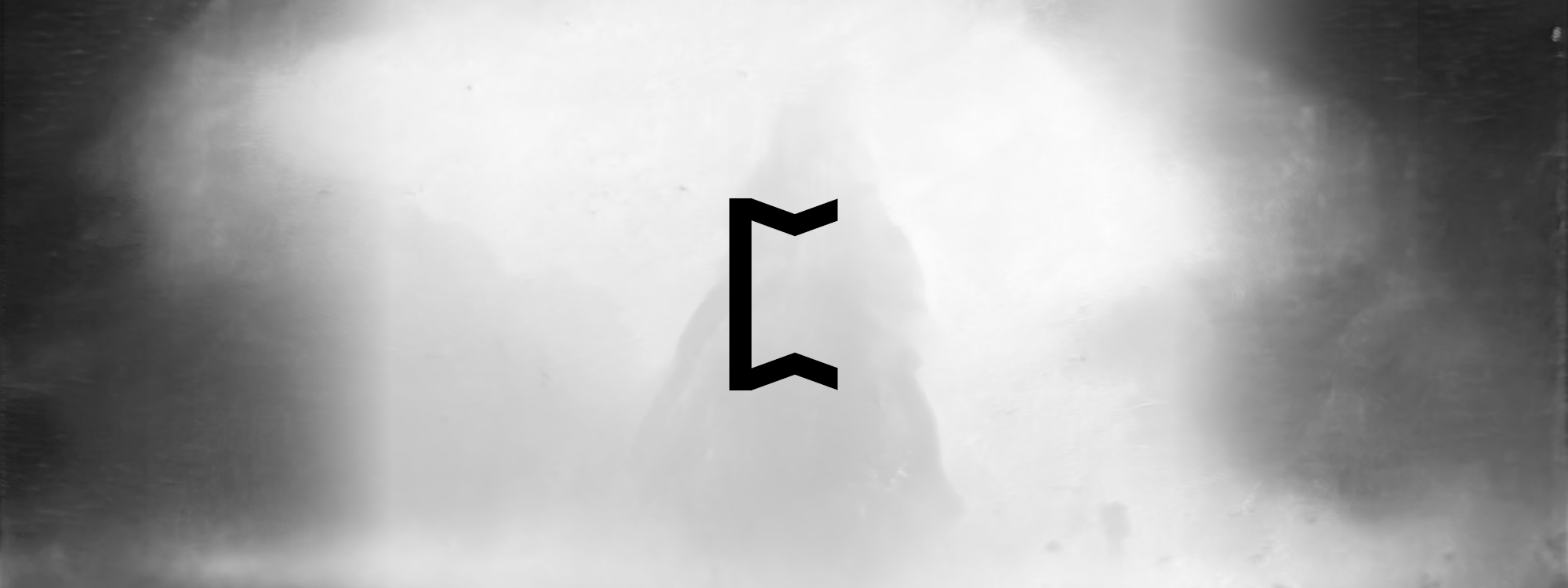
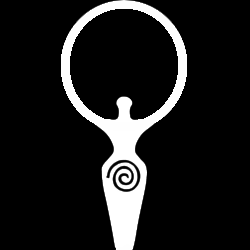
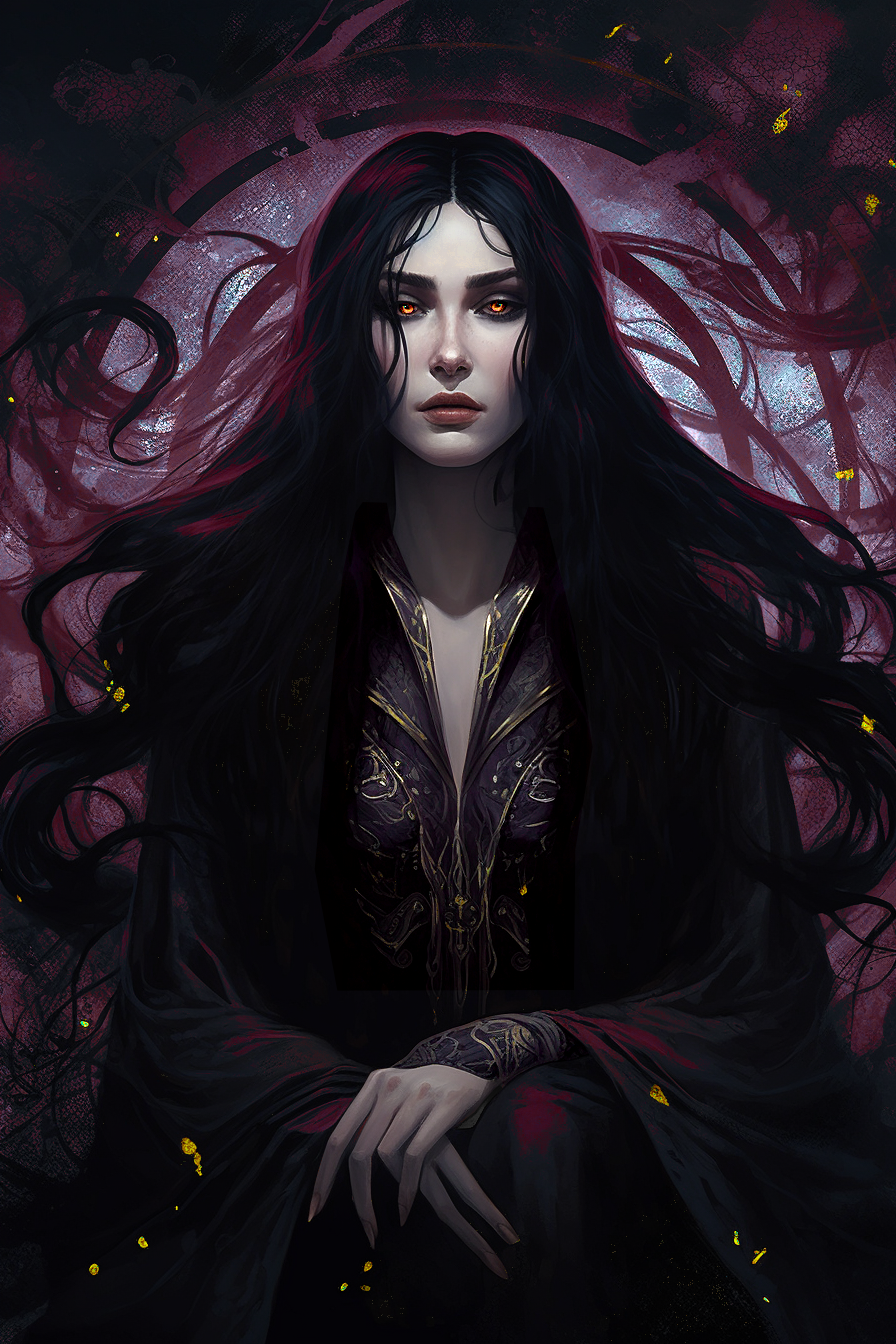
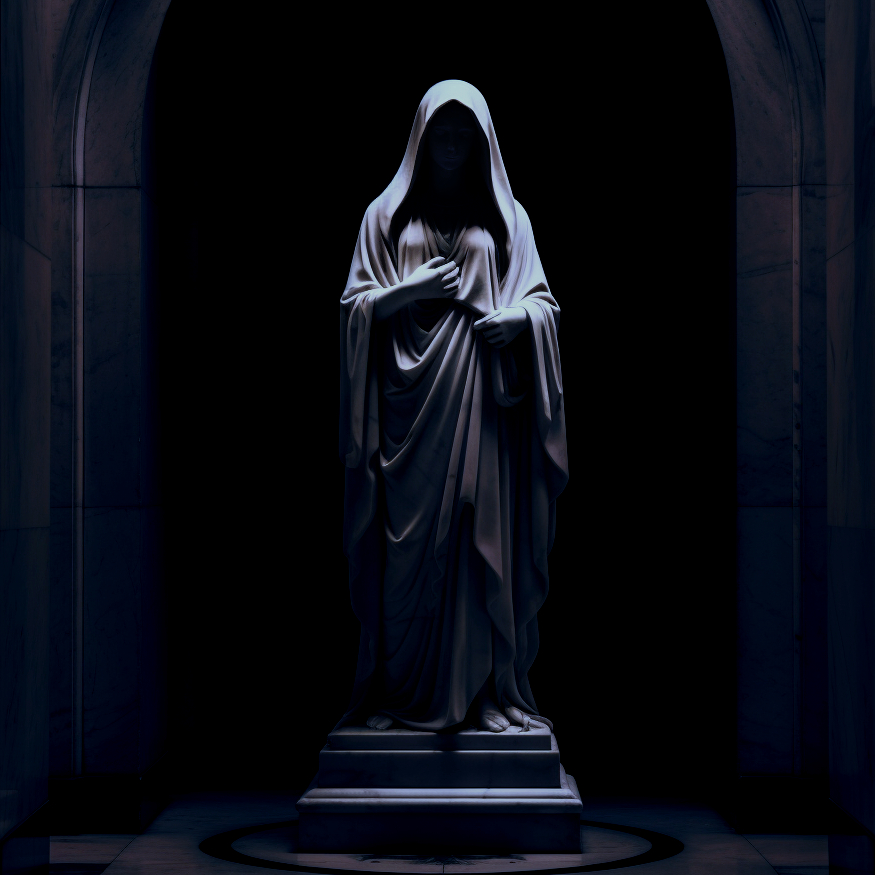

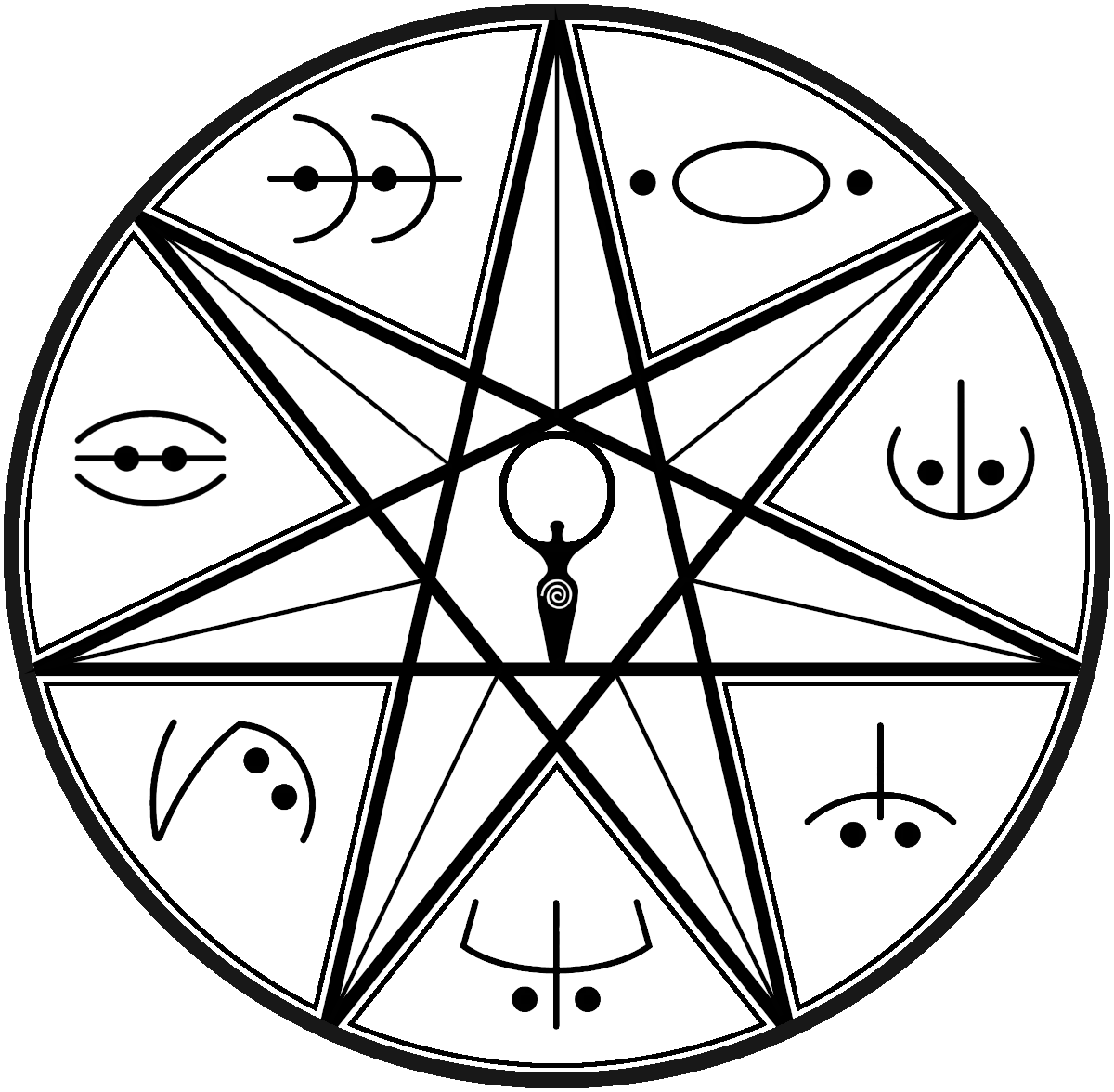

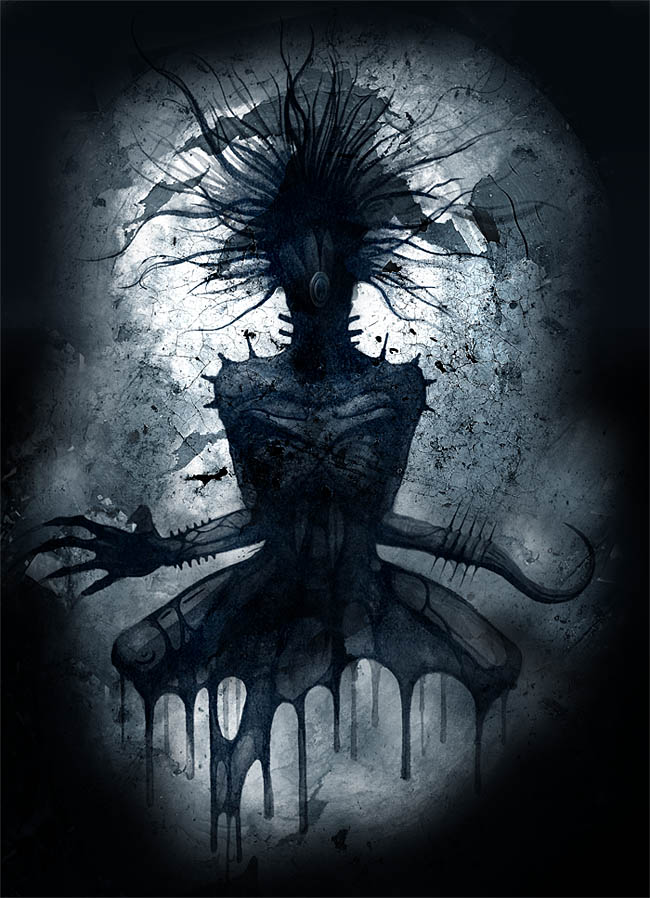
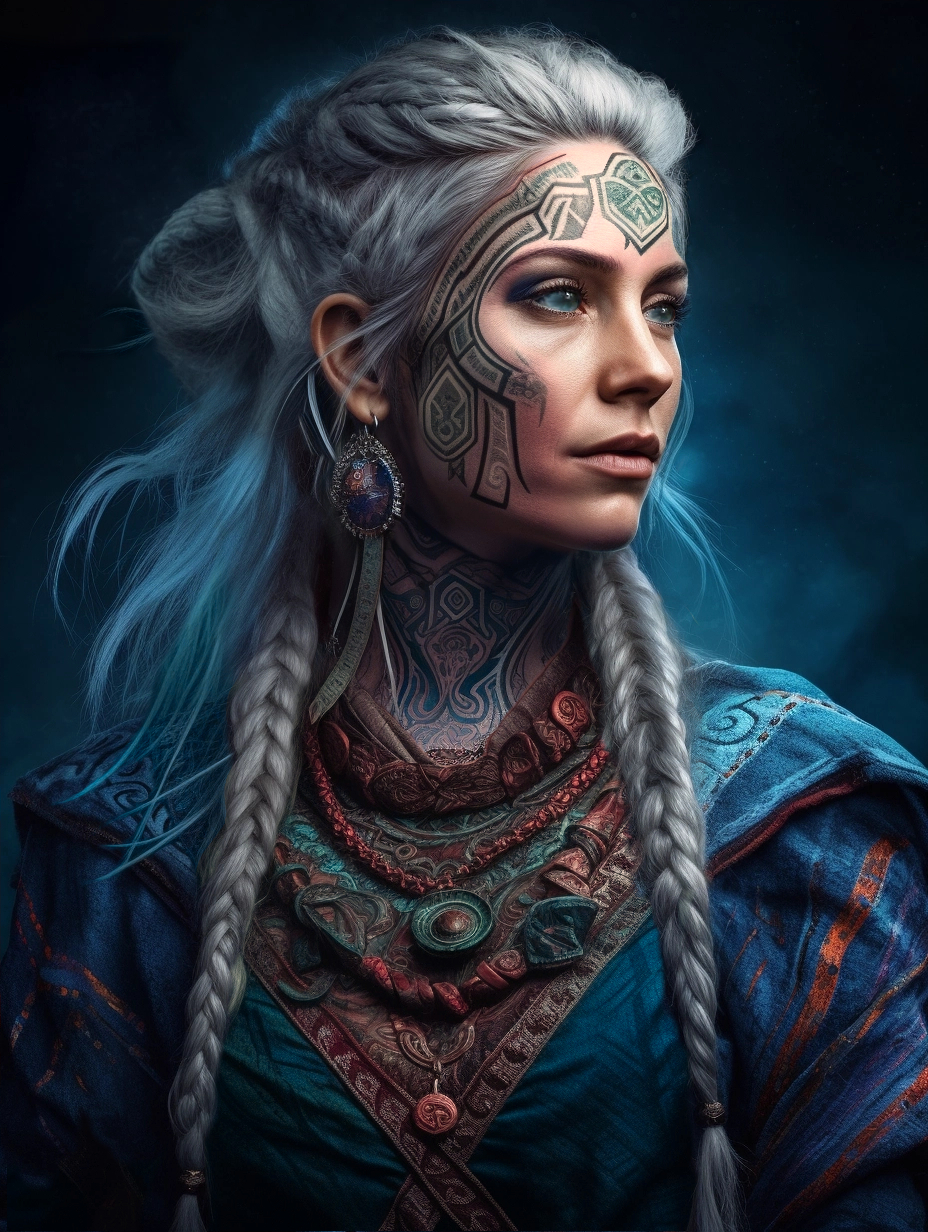
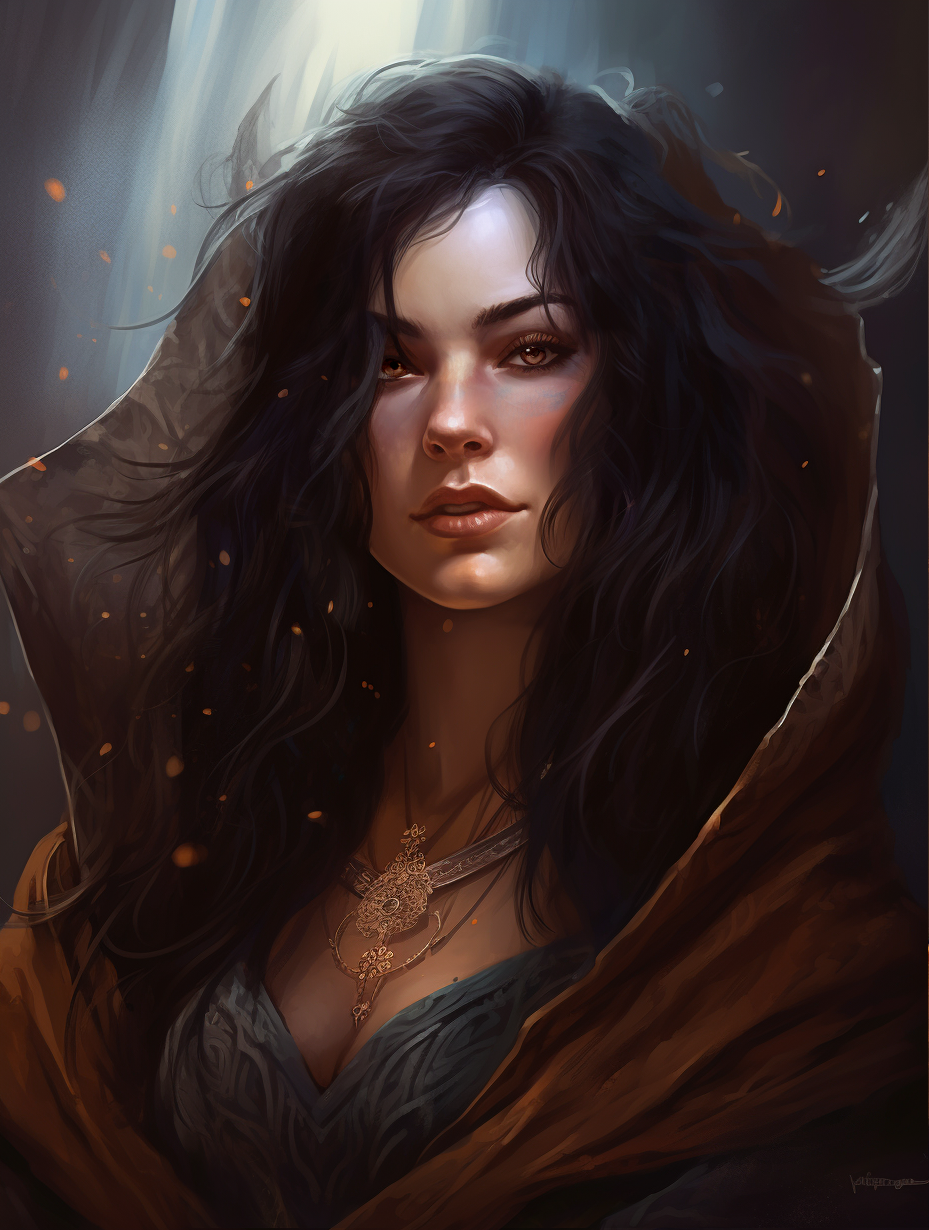
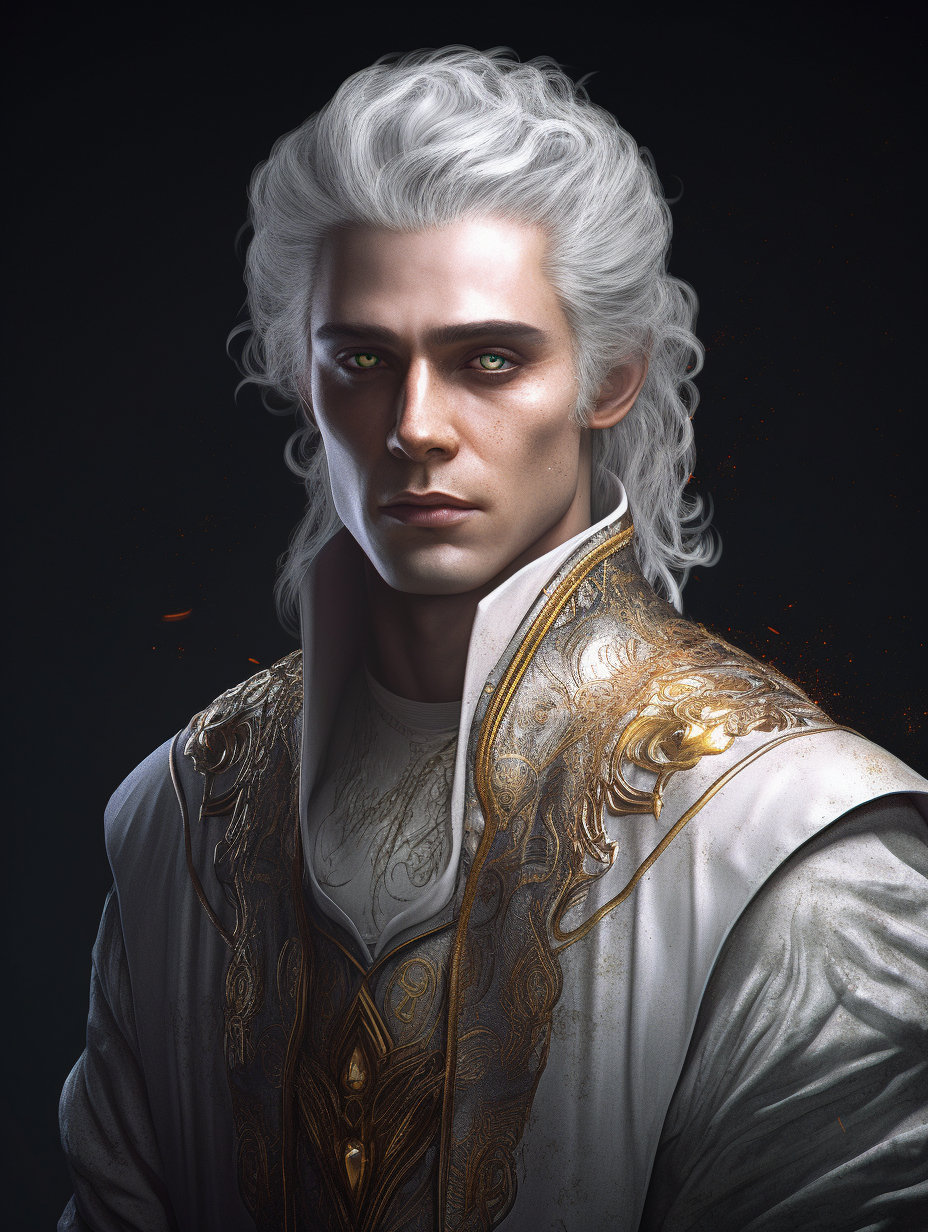
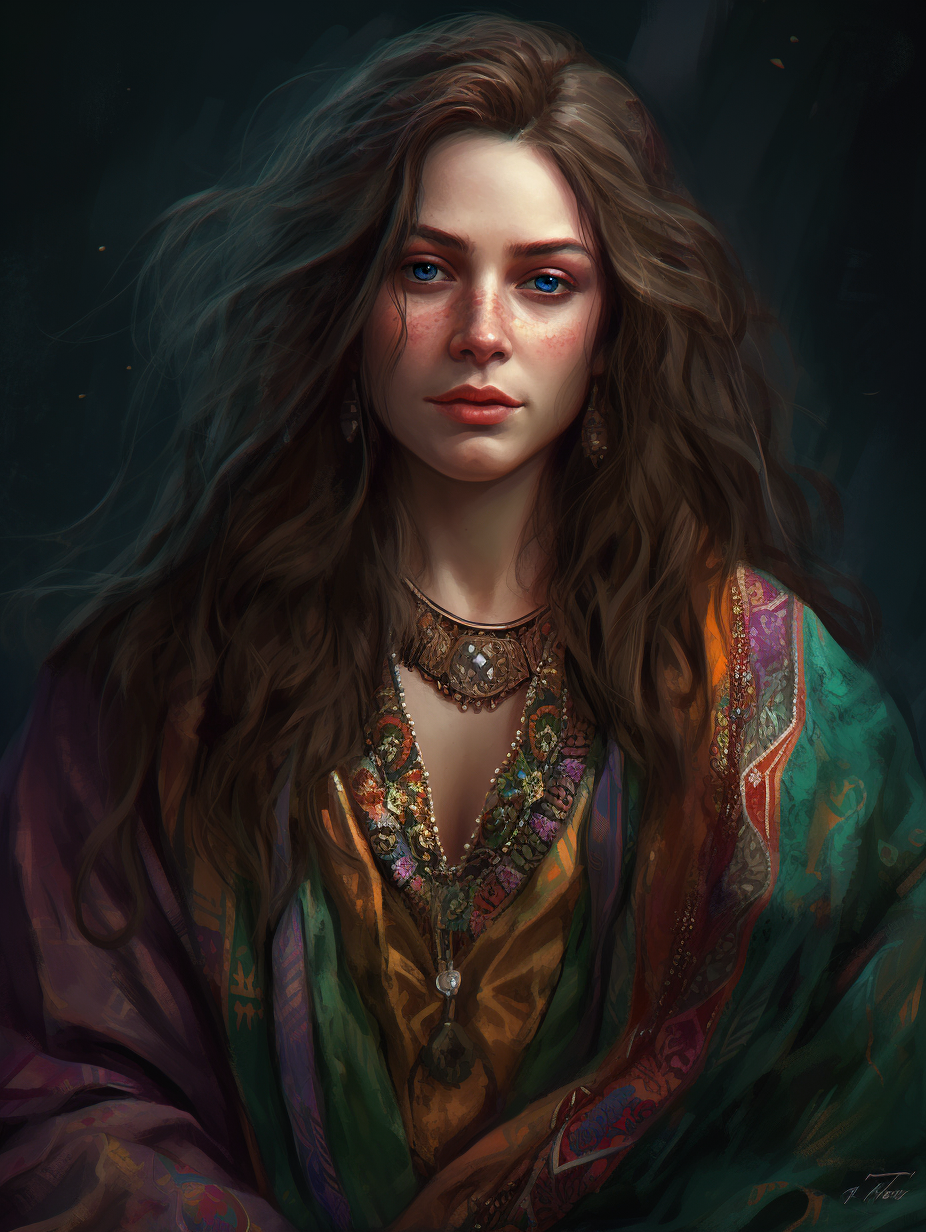
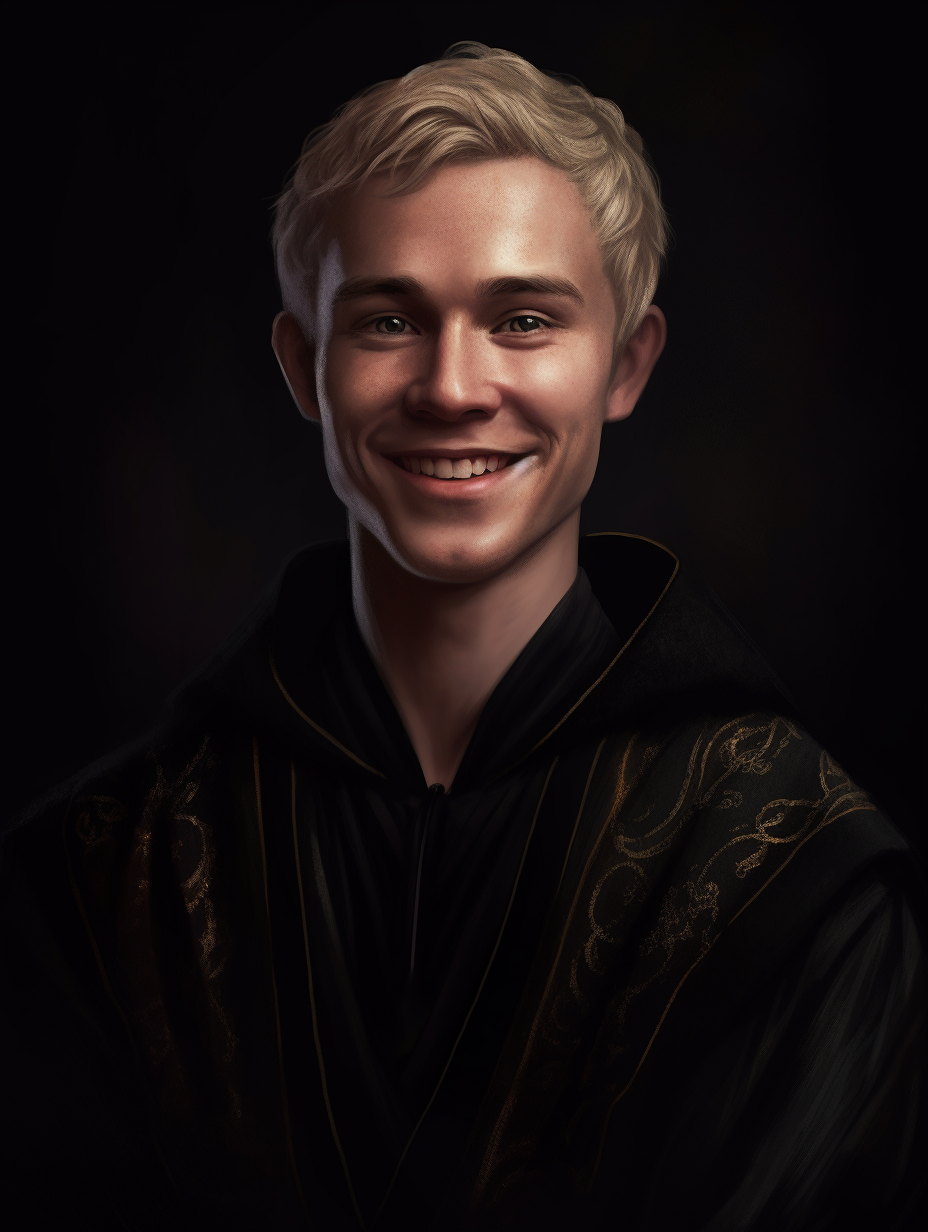
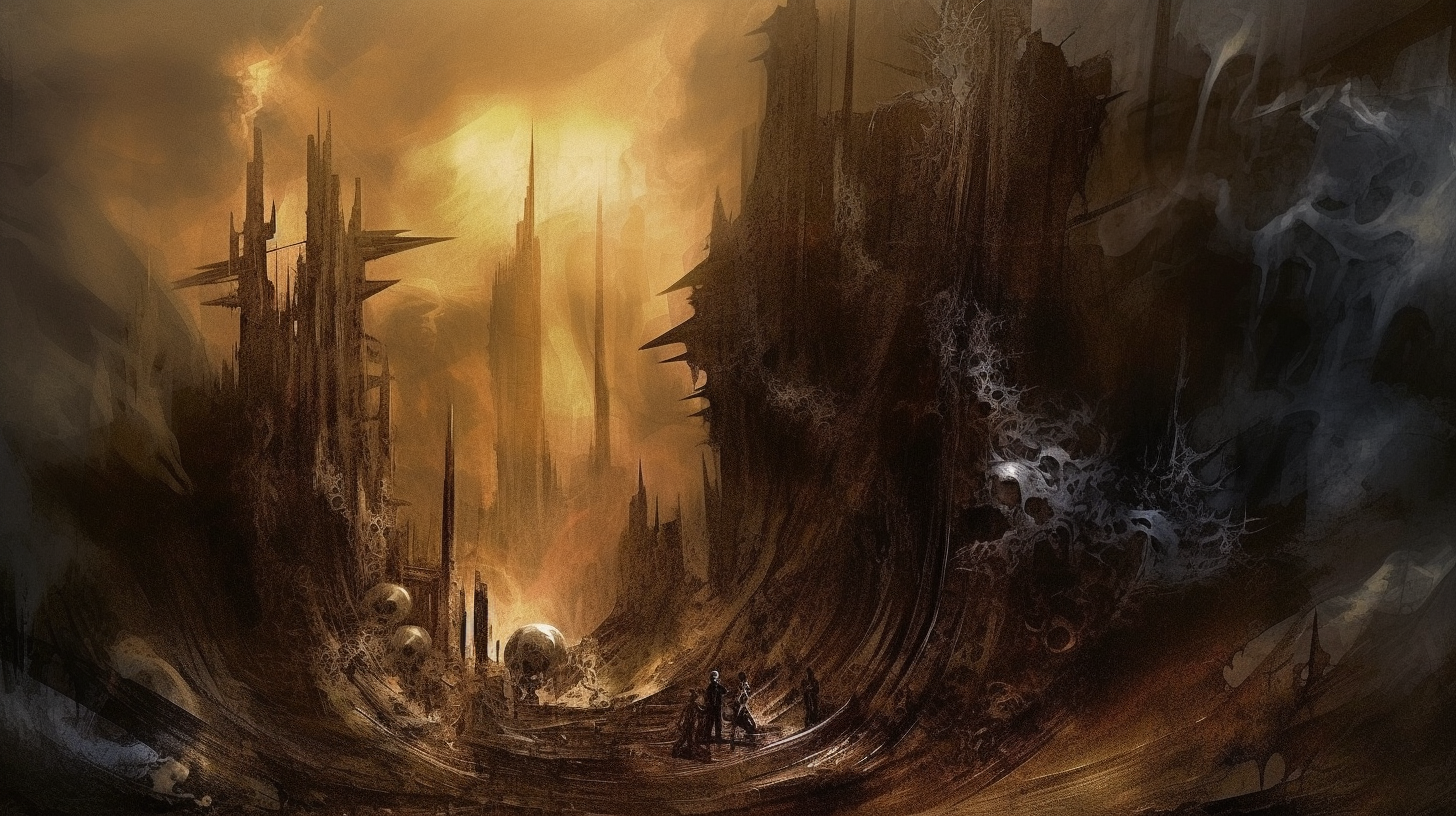
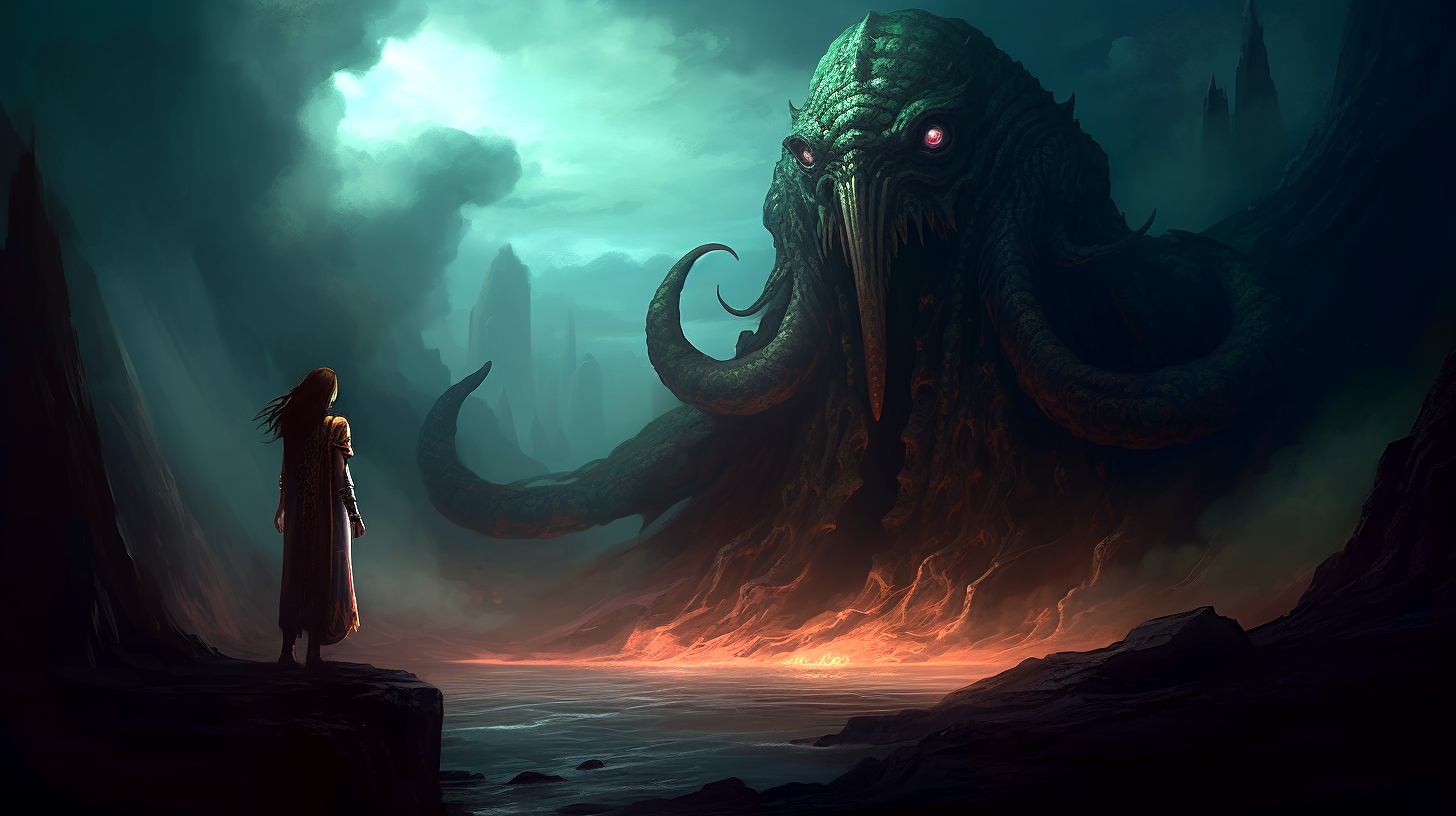
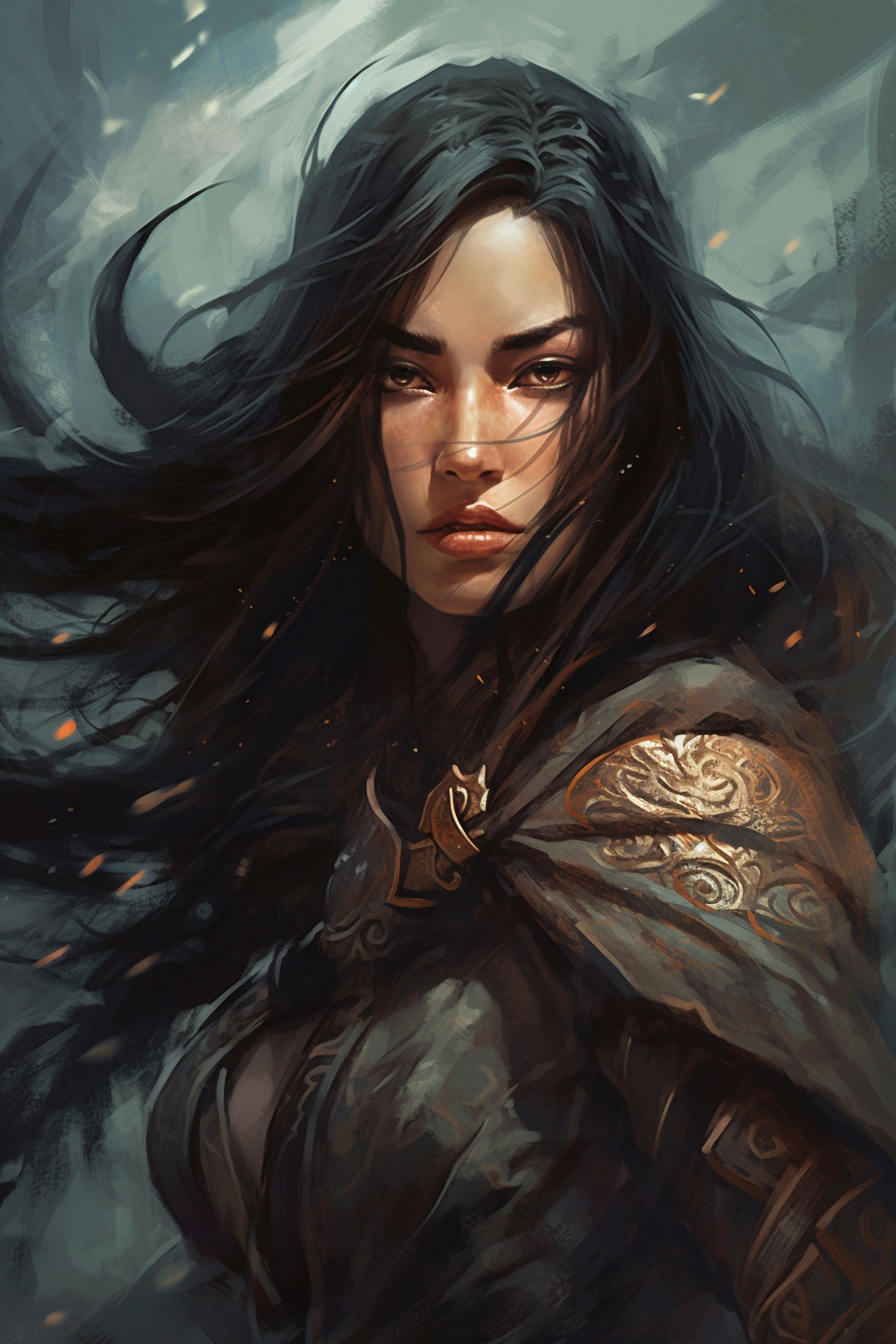
Comments